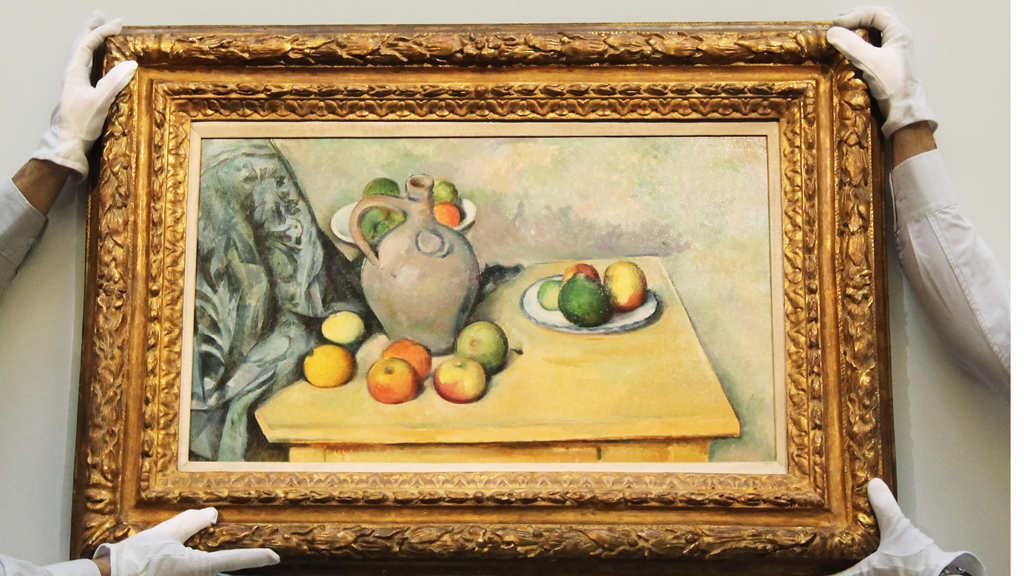Respect your elders: why the ageing population is good news
As another committee considers how to tackle the problem of the UK’s ageing society, Channel 4 News instead looks on the bright side: at the potential benefits of having an older population.

By 2050, almost a quarter of the UK population will be aged 65 or over.
The implications of this have not passed the government by. Later today, a House of Lords committee is set to quiz ministers on how the government plans to cope with this very issue.
But at Channel 4 News, we don’t want to be grumpy old men about it. While the ageing population poses major challenges – surely there are benefits too?
From a personal point of view, most people would agree with actor Maurice Chevalier: “Old age isn’t so bad when you consider the alternative.”
But what about society? Is it time to reassess our concept of the elderly, and ask not what we should be doing for them, but instead, what they can still do for us?
Old age isn’t so bad when you consider the alternative. Maurice Chevalier
“Old people will be a burden if we make them purely a burden…old people are capable of enormous greatness,” says David Galenson, a professor of economics in the United States.
In 2008, he wrote a book called Old Masters and Young Geniuses: Two Life Cycles of Artistic Creativity. He concluded that there are two kinds of genius – explosive, conceptual breakthrough thinkers, who usually make their contribution at a young age, and detailed, experimental thinkers, who reach their heights later in life through processing their experiences.
So for every young success like Einstein, Picasso or Orson Welles (who was 25 when he made Citizen Kane), there’s a Charles Darwin, a Paul Cezanne or a JM Coetzee, all of whom have done their best work later in life. For example, Cezanne was 56 when he had his first solo show.
Read more: Is it time for a revolution in the way we age?

As such, he believes that we are doing a “tremendous injustice” to older people by writing them off.
“There are lots of domains in which we subsidise young people. There’s the Turner prize for artists under 50 – what about a Francis Bacon prize for great work done after the age of 60? Instead of mandatory retirement, we should be picking out people in the midst of their creativity,” he tells Channel 4 News.
“The real answer is we haven’t even thought of what we can be doing because we don’t think there’s a problem.”
Wise old man?
Professor Galenson is not the only scholar to believe that the concept of the “wise old man” is underrated – although he would insert the word “creative” in there as well.
In the last 50 years, psychologists have come to define “general intelligence” as being made up of two elements, fluid intelligence and crystallized.
While fluid intelligence covers an innate ability to reason and make sense of abstract information, crystallized intelligence refers to the knowledge and skills that are accumulated over a lifetime – and so increases with age.
Cognitive ageing experts have also proved that not all aspects of intelligence decline as humans age. While studies have shown that some cognitive skills – such as the ability to remember unrelated information – peak at the tender age of 22, “accumulated knowledge” skills such as vocabulary and general knowledge increase until at least the age of 60.
We don’t believe an ageing population spells disaster. WRVS charity
In more traditional societies, this kind of knowledge is respected. Anthropologist Jared Diamond argues in his latest book, The World Until Yesterday, that this could be the right attitude.
He recently told The Observer newspaper: “If you want to survive a cyclone, an old person’s past experiences might well determine whether that group lives or dies…In the west today – with our cult of youth – we seem to have lost how to get value from our older people.”
However, others are less convinced.
Adam Kuper, a leading British anthropologist who founded Brunel University’s anthropology department in 1985, said this view is outdated.
“Our circumstances now are so different. All of those traditional structures are eroded by migration, industrial and technological changes. Young people know a lot of things the old don’t – as we all realise when, if we want to have our computer fixed, we have to find a 14-year-old nephew,” he told Channel 4 News.

Not dinosaurs
Volunteering organisation WRVS is perhaps most bullish about the ageing society.
“We don’t believe an ageing population spells disaster,” the organisation says. And it has statistics to back it up: recent research commissioned by the charity showed that in 2010, through taxes, spending power, provision of social care and the value of volunteering, over-65s made a net contribution of £40bn to the UK economy. It predicts this will reach £77bn by 2030.
Chief executive David McCullough tells Channel 4 News: “Higher life expectancies are a triumph of healthcare, social care, housing. That is in some ways a problem…but the benefit for me is that within society there is the means to cope with that change without needing a million more nurses and billions more pounds.”
He’s talking about volunteering, a contribution made by many in the older generation which is often overlooked.
Of 40,000 WRVS volunteers, around 24,000 of them are over 65 years old. They support people in their homes, in hospitals, with social activities and travel, and in emergencies.
Mr Mccullough describes it as a “virtuous circle” – not only are the volunteers helping older people in a more cost-effective way than through expensive state mechanisms like the NHS, but they are helping themselves. Research has shown that older people who have a sense of purpose have better mental and physical health outcomes.
Pamela Ross, 72, volunteers for a number of organisations, from the emergency services to the local Alzheimer’s group.
“Older people are not dinosaurs. They’ve got a lot to offer, a lifetime of experience and skills that can be helpful,” she tells Channel 4 News.
“The word is not to feel useless anymore. What is the point of having thousands more people over a certain age, sitting at home feeling they have nothing to offer, when they have so much to offer?”